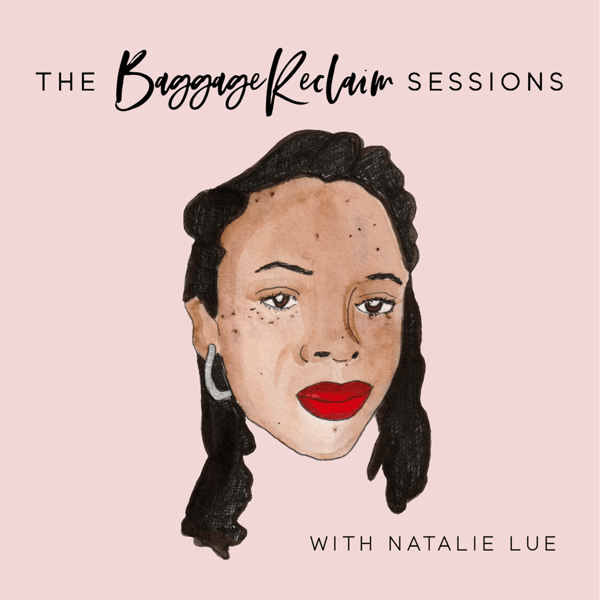Ep. 11: Confronting Issues vs Confrontation?
The Baggage Reclaim Sessions
Natalie Lue
4.9 • 867 Ratings
🗓️ 7 November 2015
⏱️ 39 minutes
🧾️ Download transcript
Summary
In this episode, Natalie talks about the difference between confronting issues and confrontation, why we sometimes need to get mad before we can feel grateful and recognise the lessons, and why it’s OK to feel protective of your space and not quite ready to date, when you first start getting to know and like you. This week’s listener question is about helping a listener understand if the difference between being vulnerable and having walls plus, Natalie shares what she’s learned after being offered money by a family member and wondering if she was supposed to decline it.
Download the Feelings Diary Guide and Unsent Letter Guide from baggagereclaim.com/downloads
The Three Good Things Notebooks mentioned in the second segment are available: store.baggagereclaim.co.uk
Email: [email protected]
Instagram | Break The Cycle Online Course | Blog | Membership
Transcript
Click on a timestamp to play from that location
| 0:00.0 | This week I talk about why we often need to get mad first before we see a blessing. |
| 0:08.8 | Plus, I explain why we need to be open to the possibility of being disappointed in order to be |
| 0:14.3 | vulnerable. I'm Natalie Lee a writer based in southeast London who is dedicated to |
| 0:20.0 | helping people to improve their emotional and relationship literacy. |
| 0:26.0 | Let's kick this off. |
| 0:30.6 | What's the difference between confronting an issue and confronting someone? |
| 0:37.0 | One of the things that becomes really apparent when I talk to people who are struggling to talk about their feelings or to handle their fears of |
| 0:46.8 | conflict is that there are misconceptions about what confronting an issue and actually confronting someone actually involved. |
| 0:57.0 | Each of them actually gets mixed up. |
| 1:00.0 | When we confront an issue, it means that we are facing up to something that bothers us. |
| 1:06.8 | This could be something that we could theoretically do on our own. |
| 1:11.6 | So we could be, I don't know, at home and thinking about something |
| 1:17.1 | that has been bothering us and then we can spend some time trying to sort of dig |
| 1:21.6 | into what we are feeling at that particular time and as we start to sort of, I guess, poke through those feelings and start to allow our thoughts to come up to the fore that we then begin to confront what the real issue is. |
| 1:35.2 | Because as is often the case, when it comes to conflict or something that bothers us, |
| 1:40.1 | what we feel the actual issue is is is normally just the top layer and what's really going on is you know beneath that |
| 1:47.4 | You know it's a bit like I hear from couples who are arguing about money for instance and they say oh you know we're arguing |
| 1:53.7 | because you know it's this and that but actually behind all of that what they're |
| 1:57.6 | really arguing about is you know feeling unseen or unheard or feeling that |
| 2:01.5 | they're not recognized or feeling that that person doesn't trust them in some way, |
| 2:05.0 | but that's not really what's being said. |
| 2:08.0 | When we confront an issue as well, it's also about bringing something up to the surface for someone. So this is an |
... |
Please login to see the full transcript.
Disclaimer: The podcast and artwork embedded on this page are from Natalie Lue, and are the property of its owner and not affiliated with or endorsed by Tapesearch.
Generated transcripts are the property of Natalie Lue and are distributed freely under the Fair Use doctrine. Transcripts generated by Tapesearch are not guaranteed to be accurate.
Copyright © Tapesearch 2025.

